Related Research Articles

Prohibition is the act or practice of forbidding something by law; more particularly the term refers to the banning of the manufacture, storage, transportation, sale, possession, and consumption of alcoholic beverages. The word is also used to refer to a period of time during which such bans are enforced.
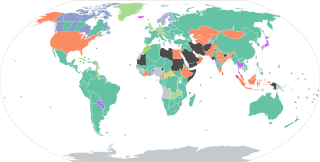
The legal drinking age is the minimum age at which a person can legally consume alcoholic beverages. The minimum age alcohol can be legally consumed can be different from the age when it can be purchased in some countries. These laws vary between countries and many laws have exemptions or special circumstances. Most laws apply only to drinking alcohol in public places with alcohol consumption in the home being mostly unregulated. Some countries also have different age limits for different types of alcohol drinks.

Judith Anne Collins is a New Zealand politician who has served as the attorney-general and minister of defence since 27 November 2023. She previously served as the leader of the Opposition and leader of the New Zealand National Party from 14 July 2020 to 25 November 2021. Collins has served as the Member of Parliament (MP) for Papakura since 2008 and was MP for Clevedon from 2002 to 2008.
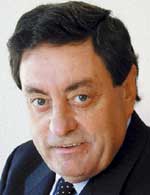
George Warren Hawkins is a New Zealand local government politician and former Labour Party Member of Parliament.
Dianne Fae Yates is a former New Zealand politician. She was a Labour Party Member of Parliament from 1993 to 2008.
Patricia Schnauer is a former New Zealand politician. She was an MP from 1996 to 1999, representing the ACT New Zealand party.
The King Country is a region of the western North Island of New Zealand. It extends approximately from Kawhia Harbour and the town of Ōtorohanga in the north to the upper reaches of the Whanganui River in the south, and from the Hauhungaroa and Rangitoto Ranges in the east to near the Tasman Sea in the west. It comprises hill country, large parts of which are forested.

Jacqueline Isobel Dean is a New Zealand politician. She was a member of parliament for the Waitaki electorate, where she represented the National Party.

Referendums are held only occasionally by the Government of New Zealand. Referendums may be government-initiated or held in accordance with the Electoral Act 1993 or the Citizens Initiated Referenda Act 1993. Nineteen referendums have been held so far ; fourteen were government-led, and five were indicative citizen initiatives.
Under New Zealand law, a licensing trust is a community-owned company with a government-authorised monopoly on the development of premises licensed for the sale of alcoholic beverages and associated accommodation in an area. This applies to both on-licence and off-licence sales.
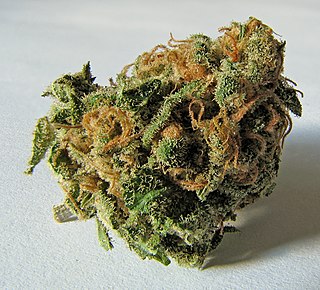
The use of cannabis in New Zealand is regulated by the Misuse of Drugs Act 1975, which makes unauthorised possession of any amount of cannabis a crime. Cannabis is the fourth-most widely used recreational drug in New Zealand, after caffeine, alcohol and tobacco, and the most widely used illicit drug. In 2001 a household survey revealed that 13.4% of New Zealanders aged 15–64 used cannabis. This ranked as the ninth-highest cannabis consumption level in the world.
The Health Sponsorship Council (HSC) was a New Zealand Crown entity that used health promotion to promote health and encourage healthy lifestyles.

Crime in New Zealand encompasses criminal law, crime statistics, the nature and characteristics of crime, sentencing, punishment, and public perceptions of crime. New Zealand criminal law has its origins in English criminal law, which was codified into statute by the New Zealand parliament in 1893. Although New Zealand remains a common law jurisdiction, all criminal offences and their penalties are codified in New Zealand statutes.

Alcohol has been consumed in New Zealand since the arrival of Europeans. The most popular alcoholic beverage is beer. The legal age to purchase alcohol is 18. New Zealand has an above average consumption rate of alcohol, in 2016 ranking 32nd globally in per-capita total alcohol consumption.
Ian Robert Flockhart McKelvie is a New Zealand politician. He represented the National Party in the New Zealand House of Representatives from 2011 to 2023.
A temporary class drug is a relatively new status for controlled drugs, which has been adopted in some jurisdictions, notably New Zealand and the United Kingdom, to attempt to bring newly synthesised designer drugs under legal control. The controlled drug legislation in these jurisdictions requires drug scheduling decisions to follow an evidence-based process, where the harms of the drug are assessed and reviewed so that an appropriate legal status can be assigned. Since many designer drugs sold in recent years have had little or no published research that could help inform such a decision, they have been widely sold as "legal highs", often for months, before sufficient evidence accumulates to justify placing them on the controlled drug schedules.
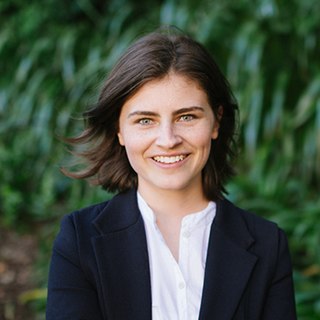
Chlöe Charlotte Swarbrick is a New Zealand politician. Following a high-profile but unsuccessful run for the 2016 Auckland mayoral election, she became a parliamentary candidate for the Green Party of Aotearoa New Zealand, standing in the 2017 New Zealand general election and was elected as a member of the New Zealand Parliament at the age of 23. In the 2020 election, Swarbrick was elected as the Member of Parliament for Auckland Central, becoming the second Green Party MP ever to win an electorate seat, and the first without a tacit endorsement from a major party leader. She retained Auckland Central in the 2023 election. In March 2024, she was elected co-leader of the Green Party.
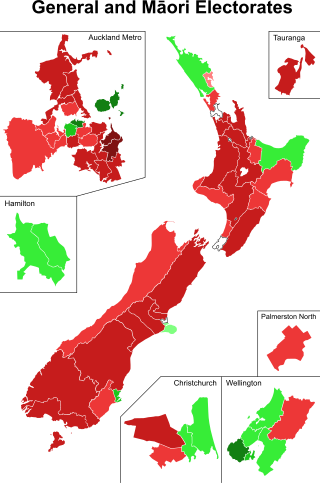
The 2020 New Zealand cannabis referendum was a non-binding referendum held on 17 October 2020 in conjunction with the 2020 general election and a euthanasia referendum, on the question of whether to legalise the sale, use, possession and production of recreational cannabis. It was rejected by New Zealand voters. The form of the referendum was a vote for or against the proposed "Cannabis Legalisation and Control Bill". Official results were released by the Electoral Commission on 6 November 2020 with 50.7% of voters opposing the legalisation and 48.4% in support.
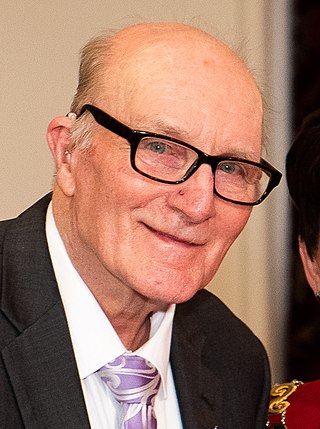
Robert John Mackay Crawford was a British-born New Zealand doctor who specialised in the treatment of alcoholism and addictions. He was medical superintendent of Queen Mary Hospital in Hanmer Springs from 1976 to 1991 and an advocate for residential treatment for addictions.
The Trusts are a group of two community-owned organisations with a near monopoly on the sale of alcohol in West Auckland. They are one of the largest alcohol retailers in New Zealand.
References
- ↑ Alcohol Advisory Council Act 1976
- ↑ "Official Alcohol Advisory Council website". Archived from the original on 23 October 2008. Retrieved 7 November 2008.
- ↑ "www.treasury.govt.nz". Archived from the original on 23 May 2009. Retrieved 7 November 2008.
- ↑ www.voxy.co.nz.